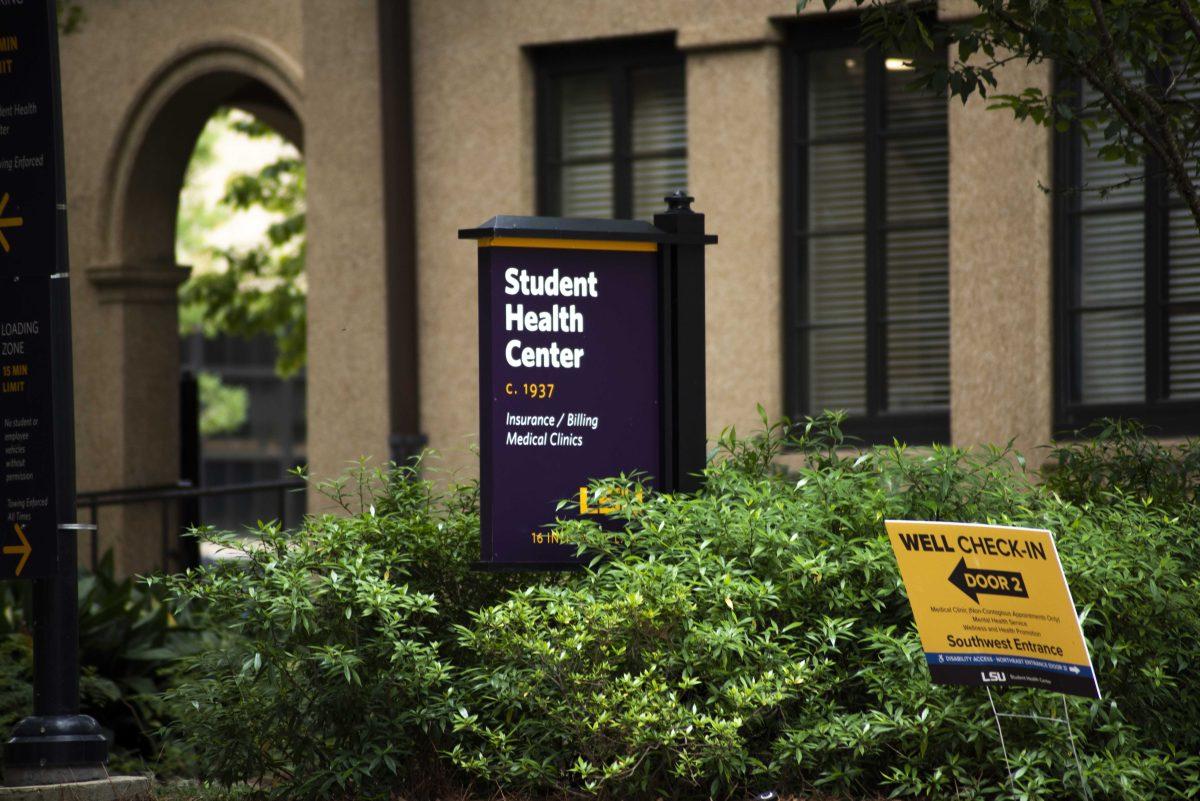The usual air of overwhelm that hangs heavy over the end of the fall semester is reportedly more suffocating in 2020 than ever before. With COVID-19, socio-political unrest and final exams looming over students’ heads, the student body at LSU is experiencing collective overwhelm.
The Student Health Center has experienced an influx of students requesting mental health services in the form of therapy, psychiatry and stress management during the fall semester, according to Director of Mental Health Services and licensed clinical psychologist Dr. John Otzenberger.
Students have reported extended wait times to get into therapy at the University, with many being told that they’d have to wait between three and four weeks to get an appointment. Otzenberger said that the mental health department is trying to make its resources readily available to students.
“We need more therapists, and we’re in the process of hiring more right now,” Otzenberger said. “We’re interviewing people on a regular basis trying to keep up with student demand.”
Deputy Chief of Staff of Student Government and psychology and English junior Angelina Cantelli said that she’s been waiting for an appointment with the Mental Health Center since the beginning of the fall semester. She’s working on initiatives with SHC to construct a “while you wait” page for students on standby for an appointment.
Otzenberger said that his department offers an alternative to students waiting for appointments. “Mental Health 101” is a 15-minute session with a therapist offered every Friday to give students support while they wait to get into therapy.
Cantelli said that she is aware of steps she can take to reduce stress, but she simply doesn’t have time to take those steps.
“Between personal and school stress, students are burning out,” Cantelli said. “I’m a psychology major, so I know I need to take care of my mental health, but I don’t have time to. I just keep going, and it’s not healthy.”
The SHC utilizes a brief model of psychotherapy in which students take part in between three and five therapy sessions before they’re encouraged to seek care outside of the University. However, a therapist can request to keep seeing a student if they feel like the student requires long-term care.
One biological sciences junior has been attending therapy at the SHC since June 2020. When her boyfriend broke up with her one week after she found out about her father’s cancer diagnosis, she said her mental health started to decline. When her father died two weeks later, she said she decided it was time to seek help from the University. She had to wait a month to get an appointment that was cancelled due to COVID-19.
When she heard the SHC was offering tele-health services, she made an appointment right away. She said it was much easier to get an appointment in the summer due to the lack of students on campus.
“I didn’t want to do online therapy, but I realized I needed to talk to someone,” she said. “After my five sessions, my therapist told me that therapy is usually short term, but I got no pushback when I asked to keep attending.”
She said that after COVID-19 restrictions are lifted, the SHC should continue offering tele-health appointments as an alternative to in-person therapy.
“I know a lot of people think it’s daunting to make an appointment,” she said. “If there’s not an appointment open right away, keep trying because once you get in, it goes a lot smoother. You just have to get in, and that’s the hardest part.”
Cantelli said that SG is setting up a “No Cuts” campaign in spring 2021 that would allow students to lobby at the state capitol, pending COVID-19 restrictions. Cantelli has been in conversation with leadership from other LSU system schools who report being low on mental health funds.
“Since 2021 is a budget year, and higher education is one of the funds that can be cut, we’re going to try and get a bill written to allocate more money to the SHC for mental health services,” Cantelli said.
The SHC told Cantelli they are going to start taking privatized insurance in the upcoming semesters, a move that will save the SHC money that can be reallocated toward mental health services.
Cantelli said that the month of October was especially hard for LSU students. Three students died in October, two of suicide and one in a car wreck.
“The events of the last month have shown that there is a real need for mental health advocacy and treatment on our campus,” Cantelli said. “It’s not isolated incidents where we can pretend that not all students are affected. We need to address the trauma in our community this semester.”
She said that while she thinks people are more willing to engage in discourse about mental health, some communities face social stigmas when it comes to seeking mental or emotional support.
“I think that in our generation, the stigma around mental health has been challenged a lot, but I don’t think everyone feels safe enough to report mental health issues,” Cantelli said. “Men are taught to suppress their emotions, and that culture still has to be broken. While I want students to feel comfortable reaching out for mental help, I know that there are social barriers stopping them.”
Otzenberger said that while the department is short on therapists to meet students’ demand, students should not hesitate to seek help from the SHC.
“There are so many programs that students can access,” Otzenberger said. “It’s as simple as calling. The SHC is a one-stop stop for mental health services from therapy to psychiatry. All students have to do is call.”
Students can reach the 24-hour crisis and emotional support line exclusively for LSU students at 225-924-5781. They can get mental health services at the SHC by calling 225-578-8774.






